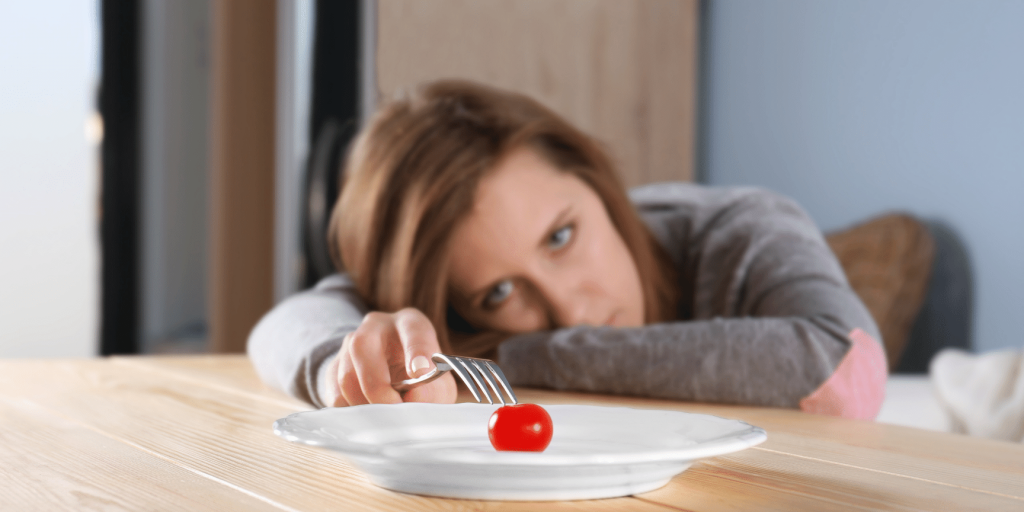Are diets below 1000 kcal bad?

Diets below 1,000 kcal produce quick, albeit temporary, results and, in addition, have a negative impact on the physical as well as mental health of those who follow them. Still, few people are aware that weight loss with these diets mainly involves the loss of glycogen, water and muscle mass, not body fat. Find out how to lose weight healthily on your own terms.
“Oh no the holidays are a week away and I still need to lose weight!” Let him throw the first stone who has never, at least, tried a diet under 1,000 kcal because, for some reason, he “had” to get rid of weight in a short time. That’s right. Apparently, nutritional awareness in today’s world is already better than it was two decades ago, and yet there is still a new diet that becomes the hit of the season, on which you will lose 10 kg in a fortnight. Only is it actually effective and, above all, healthy? Let’s take a closer look.
What is weight loss really all about?
Let’s start with the simplest rule guiding all weight-loss diets, which is “To lose weight, you need to consume fewer kcal than your total energy needs, but no less than your basal metabolism”. What is total body requirement? It is the amount of energy our body needs to function properly. It is the sum of the basal metabolism (needed to sustain basic bodily functions) and the supra-basal metabolism (related to activity throughout the day). You can read more about what the body’s energy needs are and how to calculate them in the article How to calculate your needs correctly (including: why there are differences between different calculators). In a nutshell, to lose weight, you need to burn more kcal per day than you consume from food. However, this cannot be done quickly and without forethought, as our health may suffer and the lost weight will quickly return, sometimes even with redoubled strength in the form of the yoyo effect.
Is what we burn fat?
When we provide the body with less energy than it needs, it starts to use the reserves it has. Unfortunately, the reserves are not only fat tissue, but also glucose in the blood, glycogen in the muscles and liver and water, which binds to it and is also released from the body. Next in line is also not fat, but… muscle. Last in line to be burned is adipose tissue. Furthermore, physical activity is needed to let the body know that muscles are needed and not to be burned. It is, so to speak, the impulse that stimulates them and forces them to grow. Of course, this will not happen without an adequate supply of protein, but that is a topic for another article.
How the body works on a diet below 1000 kcal
If we assume that the energy requirements of the average adult Smith are 2000 kcal per day, we can quickly come to the simple conclusion that diets below 1000 kcal work because they have to – after all, they perfectly fulfil the above rule about burning more kcal than you consume in a day.
However, we forget the part that says that the amount of kcal consumed should not be less than the basal metabolism, which usually fluctuates around 1200-1300 kcal (and certainly does not fall below 1000 kcal – in the average adult).
By leading the body to such a large energy deficit, we trigger the mechanism described above, but with such a low energy supply, there is no room for the impulse coming from physical activity (which, by the way, is not even recommended by the authors of such restrictive diets). Overall, this results in weight loss that is too rapid and, in addition, mostly involves loss of muscle mass rather than body fat. Furthermore, if we do not regularly provide sufficient energy and nutrients to carry out the relevant vital processes in the body, the body and organs begin to rebel and fail.
We must not forget the psychological aspect either. In order to supply the body with so few kcal per day, we must limit our intake not only in quantity but also in quality of food and switch mainly to the consumption of vegetables and fruit, as they are the least calorific. From a psychological point of view, all those products that we “cannot” eat become forbidden fruit for us. When, after some time of not eating these products, we stop the diet and try them again, there is a high probability that we will eat far more of them than we should.
As a consequence, not only will our body weight start to rise again very quickly, but we may also develop an eating disorder triggered by remorse after moments of overeating and the resulting increase in body weight.
Popular diets under 1000 kcal
- Dr. Dabrowska’s diet
- The Copenhagen Diet
- 1000 kcal diet
- The juice diet
- The SIRT diet
How to eat to lose weight healthily?
In order to lose weight healthily, we should introduce an energy deficit of 100-1000 kcal/day, but still under the assumption that the amount of kcal should not be lower than the value of the basic metabolism. In practice, a deficit value of 500-700 kcal is most often recommended. It is also often assumed that the energy deficit value varies during the week, which has a beneficial effect on weight loss both from the psychological side (we have the feeling that, for example, 2 days a week we are not on a diet) and from the physiological side (with a longer process of weight loss, in this way we stimulate the organism and stimulate it to continue losing weight without introducing a drastic calorie deficit). In terms of the menu itself, we should have a varied diet, rich in fruit, vegetables and whole grains as a source of fibre, with an adequate supply of protein and healthy fats. However, we should not give up the dishes we enjoy. Even if their nutritional value is inferior to other dishes, it is worth incorporating them properly into the menu with the help of a wise dietician. After all, it is the diet that should be adapted to us, not us to the diet! Of course, we must also remember to consume sufficient fluids and moderate physical activity, preferably also adapted by a trainer.
Calorie calculator as a tool to control your diet
If you want to lose weight and improve your relationship with food, but for some reason you don’t want to or can’t get the help of a nutritionist, it’s worth trying to make friends with a calorie counting app such as Fitatu. The app will calculate your energy requirements, make it easy for you to count calories and also support you in losing weight with many additional features such as:
- recipe catalogue – is your cookbook with calculated kcal and macros,
- fridge function – helps you find recipes for the products you have in the fridge,
- reminders – help you to keep your meals regular and remind you to drink water,
- menu selection – thanks to this service, you get meal suggestions per meal with calories adapted to you,
- shopping list – allows you to generate a shopping list based on the products/dishes you have added to your menu, and much more!
Summary
If you really want to lose weight, it’s time to get serious and stop fooling yourself. Diets below 1000 kcal do work, but only in the short term. They also do more harm to your body and psyche than good. It is time to stop following yearly weight-loss diets and simply learn to eat healthily on your own terms. You may not lose 10 kilos in a fortnight, but if you do it wisely, you will certainly lose weight healthily and permanently, without giving up what you like to eat, just by making modifications to your diet. Doesn’t that sound better?
Fitatu App
Download the application from the Play Store or Apple Store and start counting your macros with us!
Do you prefer the web version? No problem. A basic web version is prepared for our subscribers. And now you can use the 1000-E discount code by going to https://www.fitatu.com/app/giftcode and get 29% off your monthly Fitatu Premium.
What else can you find in Fitatu Premium?
- over 1000 recipes plus several new ones every month
- additional plans for intermittent fasting
- the ability to create shopping lists
- a choice of six ready-made menus full of meals to choose
- filtering products and recipes
- more synchronization with fit apps
- access to the application in the web version
- no ads!
Bibliography:
Cybulska, C., Marcinkowska, E., & Grzymisławski, M. (2018). Głodowanie z wyboru―konsekwencje zdrowotne. In Forum Zaburzeń Metabolicznych (Vol. 9, No. 1, pp. 1-8).





